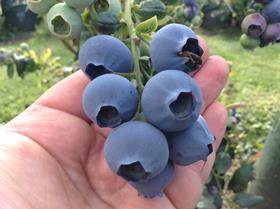
Fruit supplier AG Thames Group is “optimistic” after a difficult year which has seen its profits fall, despite increased turnover in its soft fruit business.
The company recorded a revenue rise in berries of £3.4million up to a total of £89.9m in 2017 despite experiencing a “challenging' 12 months.
Chairman for the group, Leon Aichen said profits were affected by a series of one off costs from business restructuring, due to what he described as “intense price competition in the sector”, but noted that they remained one of the main suppliers to Sainsbury’s following the announcement of their merger with Asda.
The group continues to feel the sting of their subsidiary Chingford Fruit losing their Waitrose supply deal in 2016, suffering a 9.3 per cent revenue drop this year.
In 2016 the company also shed its logistics firm Solstor, to focus on fruit supply.
They have since poured £1.5m back into the company, with some of that spent on building a new ERP (Enterprise Resource Planning) system. “The business had responded proactively to major structural changes to fresh fruit supply in the UK, leading to mixed figures in their annual report,” Aichen said.
The Kent-based company also revealed a 1.5 per cent increase in group turnover from continuing operationsas well as a net cash inflow of £1.3m, leading to an increase in cash and cash equivalents to £10.2m.
“Overall the directors are happy with company performance in the face of some big challenges in the sector. One of the biggest successes is that we were able to retain our position as one of the main suppliers to our biggest customer.
“It’s been a particularly unique year for the company as we’ve had to make some significant changes to the business structure in order to remain competitive and meet the demands of the new model.
“This is reflected in some of the figures in our latest financial statements. For example, pre-tax profit and operating profit have both decreased from the previous year.”
Aichen said despite being “cautious” about the future, they are in a strong position to remain competitive. “We believe that these proactive changes have now set the business up for the 12 months ahead, where we can remain competitive in an increasingly crowded market. While we are cautious about the future, we’re confident that the business will remain competitive.”



